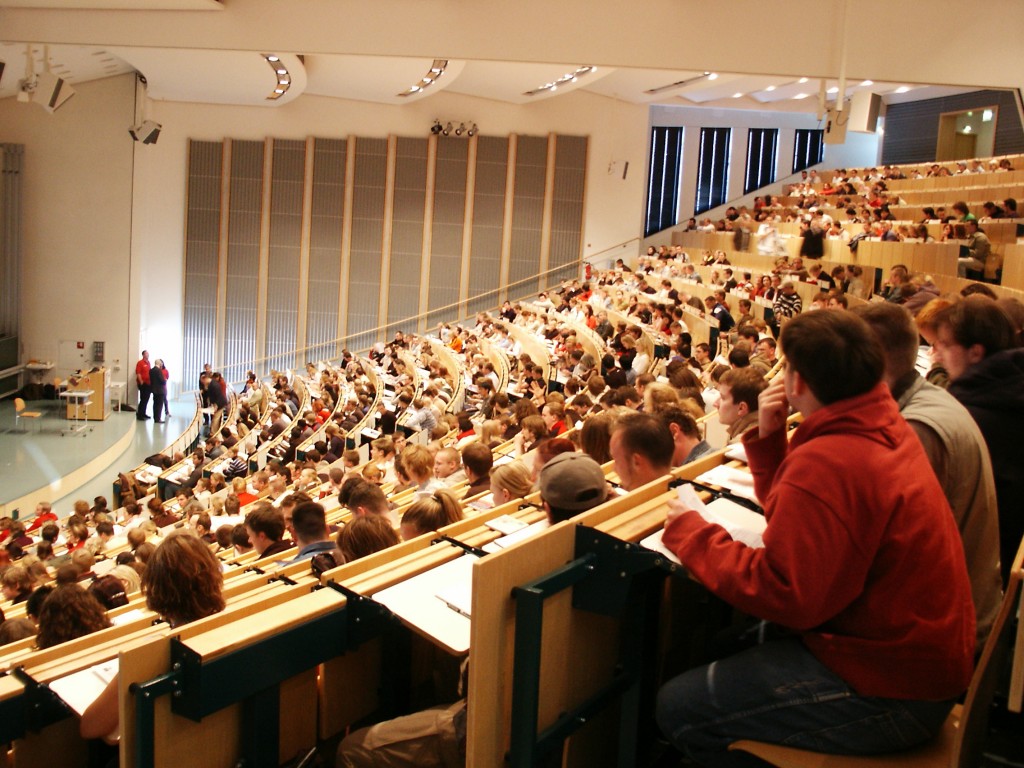Too Many Students, too Few Apperentices
 I’ve studied now Philosophy … and even – alas! Theology, from end to end, with labor keen; and here, poor fool! – with all my lore, I stand no wiser than before.”
I’ve studied now Philosophy … and even – alas! Theology, from end to end, with labor keen; and here, poor fool! – with all my lore, I stand no wiser than before.”
It seems that already polymath Goethe realized that Germany, the “land of poets and thinkers,” would need more than just a surplus of liberal arts students.
Today, more than two centuries later, Germany is in the throes of academia mania. That’s because numbers of secondary school graduates eligible for college are rising. In 2012, some 357,000 youngsters, or 33.4 percent of their age group, received their university-prep diploma, the abitur. In 2013, that number rose to 370,600 – an increase of 3.8 percent in just one year. But what about professional training in the skilled trades and services? In the spring of 2013, Germany’s then foreign minister, Guido Westerwelle, pointed out the many benefits of the country’s system of dual-track professional training.
Export hit: dual professional training
It was developing into a “real export hit and a guarantee for well-qualified, specialized workers, and low youth unemployment”. But this is no time for Germany to rest on its laurels. The country has to urgently come up with a solution to ease the worsening shortage of specialized labor and find incentives to secure the future of this export hit that could be facing extinction. It’s not enough to offer an apprenticeship to 5,000 Spanish youngsters a year who would otherwise have few prospects at home. A more sustainable approach might be a targeted reform program to try and reduce the glut of university students.
In the past ten years, the number of young people who have begun studying at a higher-education institution has expanded by 34 percent to more than 2.6 million. Nearly half of them are enrolled in law, economics or social sciences programs (30 percent) or languages and liberal arts (19 percent).
Shortage of specialists
Meanwhile the number of newly signed trainee contracts has been declining for years. In 2013 the figure hit a historic low at 530,000 – the lowest since Germany’s reunification in 1990.
In 2012, the number of apprentices in the country totaled 1.43 million, or just over half the number of university students. Consider also that the average time in which a worker completes his or her professional training is more than two years less than a student needs to get a degree. Both have about the same dropout rate of 25 percent. Yet a good professional qualification obviously doesn’t interest most kids with a college-prep diploma. Do they fear the higher risk of unemployment later in life, which is only half as high for university graduates (2.5 percent) as for other workers? Or is it the unrestricted freedoms afforded to many students? And doesn’t a misguided federal policy, which enthusiastically welcomes the rising numbers of students, contribute to the specialized labor crisis?
Action is urgently needed. The country’s small and midsized companies must become more attractive again to secondary school graduates, and especially to the college-prep crowd. Recently, many German regions cut the number of years needed to obtain an abitur to 12.
Criticism of this new “turbo-abitur” has been deafening, and a backlash of sorts has already begun. In the 2015-16 school year, Lower Saxony will become the first of Germany’s states to return to the 13-year abitur.
One successful idea, called “Girls’ Day,” should be pushed intensively to motivate girls and young women to enter technical and scientific careers. Another possible approach would be to combine professional training with university-prep schooling, the way East Germany did, or to adopt the Austrian model: There, “polytechnical schools” utilize an entire school year and support their pupils in making career choices through tours of industrial plants, training facilities and other institutions.
Besides the German federal government, the individual states’ education ministers have to get involved to achieve a change, in addition to chambers of commerce, the private sector needs to participate involved, and last but not least the pupils themselves. Germany must think ahead to make sure that its economy receives the supply of specialized labor so essential for its continued success.
